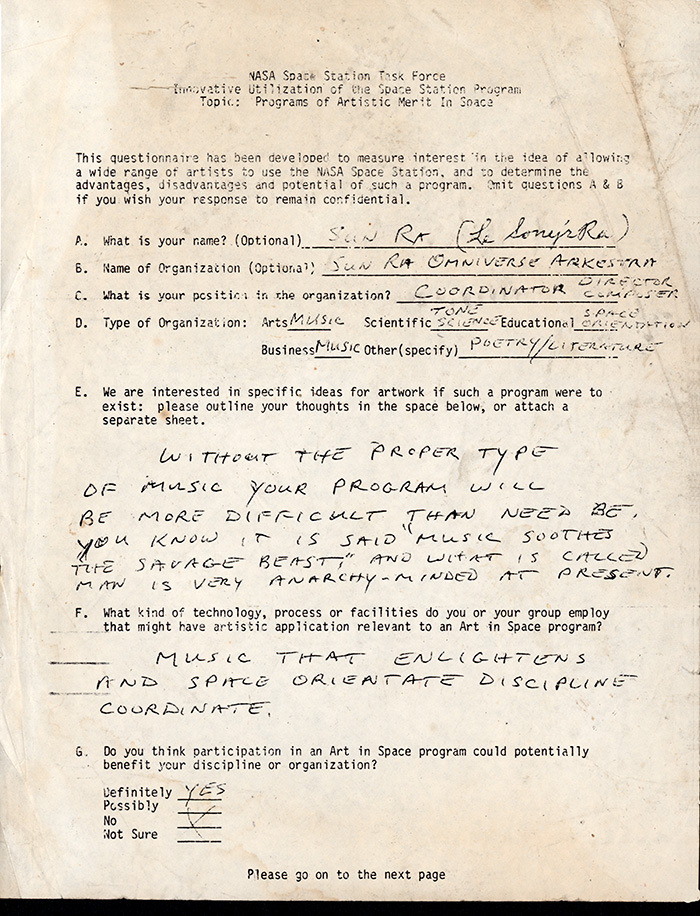When Sun Ra asked NASA to send his music to space.
Throughout most of his career, Herman “Sonny” Blount, better known as Sun Ra, maintained that he had come to Earth from Saturn, where extraterrestrial beings had told him to speak through his music. In the late 1970s, the jazz keyboardist, composer, bandleader, and poet tried to send his music back into space.
He applied to a NASA art program in the hope of getting his music on the Voyager 1 and Voyager 2 space probes, which were launched in 1977. NASA’s plan was “to put together what came to be called the Golden Record,” explains William Sites, associate professor in the Crown Family School of Social Work, Policy, and Practice and author of Sun Ra’s Chicago: Afrofuturism and the City (University of Chicago Press, 2020). The record would bring earthly images; nature sounds; greetings, both ancient and modern; and music to space—and to whomever might be out there.

Sun Ra exhorts the reviewers of his application, which is housed today in the Alton Abraham Collection of Sun Ra at the Hanna Holborn Gray Special Collections Research Center, to include the “proper type of music”—music meant, like his, to awaken people to the violence of racial oppression, war, and planetary destruction, and to show people, as Sites puts it, “the possibility of a better, more harmonious, and Black-centered future in outer space.” In Sites’s view, while Sun Ra’s experimental jazz may appear wholly improvised and spontaneous, it exemplifies a “balance between music which is searching and exploratory but also highly crafted and deeply the result of long study and self-discipline and training.”
Sites adds, “Sun Ra always saw his music as space music.” He believed it could “transport us, both figuratively in terms of our minds and our spirits, but also even in some ways literally to outer space.”
Astrophysicist Carl Sagan, AB’54, SB’55, SM’56, PhD’60, chaired the committee that read Sun Ra’s application. Of the committee’s 27 musical selections for the Golden Record, three songs convey 20th-century American culture: Blind Willie Johnson’s “Dark Was the Night,” Louis Armstrong’s recording of “Melancholy Blues,” and Chuck Berry’s “Johnny B. Goode.” Sun Ra didn’t make the cut.
When a reporter asked him whether he was disappointed his music would not be included on the Golden Record, Sun Ra replied, “The outer space beings are my brothers. They sent me here. So they already know my music.”
